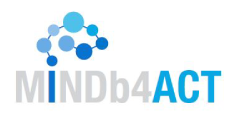 https://www.synyo.com/wp-content/uploads/SYNYO-NEWS-featured-image-Press-Release.png
400
459
leo
https://www.synyo.com/wp-content/uploads/2017/09/synyo-logo.png
leo2025-12-15 09:55:062025-12-18 09:55:28ReIncluGen: European Research Project Maps New Ways to Strengthen Support for Migrant Women
https://www.synyo.com/wp-content/uploads/SYNYO-NEWS-featured-image-Press-Release.png
400
459
leo
https://www.synyo.com/wp-content/uploads/2017/09/synyo-logo.png
leo2025-12-15 09:55:062025-12-18 09:55:28ReIncluGen: European Research Project Maps New Ways to Strengthen Support for Migrant WomenMINDb4ACT

MINDb4ACT: Methodological consistence and collaboration for new prevention strategies and policies
MINDb4ACT was designed and managed to reach a scientific, policy and societal impact in context of radicalization and violent extremism. These impacts refer to the different domains related to the future of research on prevention and countering violent extremism. The common impacts of the project, which are highlighted below, are not only targeting the national, but especially the European level.
The scientific impact of MINDb4ACT mainly refers to contributions to research, often addressing or being validated by the academia. The policy impact concerns all the results that refer to policy makers or any action driven to influence the decision-making as well as ongoing policy initiatives and strategies. The social impact mainly refers to any output that enhanced first-line practitioners’ capacities and results that raise the knowledge and awareness of the general public on the phenomenon of radicalisation, such as integrating key societal dimensions into the design of policies and interventions (i.e., gender, youth, ethics).
Coherence and methodological consistence
MINDb4ACT produced two methodological instruments which are useful for the conceptualisation, design, implementation and evaluation of interventions aimed at preventing violent extremism. These tools are standardised, so that they can be adapted and used in projects that differ in terms of the context of intervention, the actors involved, the resources available, the timing, etc.
The first one is the Living Lab methodology, an innovative participatory approach which was tested and validated by MINDb4ACT for the first time in the design of prevention and countering violent extremism (P/CVE) policies and development of pilot projects. The second instrument is the self-evaluation questionnaire, a guideline that helped identify the most relevant aspects for planning an evaluation of P/CVE projects. The questionnaire was conceived as a quality control mechanism to ensure both the methodological rigor of the evaluations of the pilot projects that were implemented as part of MINDb4ACT. The tool establishes standards for effective program evaluation, guiding implementing stakeholders in conceiving, planning, and conducting their evaluations. This way, the questionnaire helps to align disconnected evaluation efforts into systematic, objective and rigorous approaches. The tool was created only for its exploitation within the project. It will require an external validation by evaluation experts for its exploitation beyond the project, yet it could be used as a sample for future interventions.
Academic debate
This action mainly refers to the project’s scientific impact and its contribution to academia. Firstly, the project generated scientific publications that contribute to a better understanding of the processes of violent radicalisation and the policies implemented to prevent it effectively. Specifically, five scientific articles with relevant findings from the project were produced and published in open access. The articles provide practical examples of how MINDb4ACT works towards improving the current P/CVE framework at the local, national and European level, on the basis of multidisciplinary dialogue and academic research.
Additionally, scientific results of the project were disseminated during the second half of MINDb4ACT in a series of events, such as seminars, workshops, expert groups and summer schools. Participation in this kind of events provided an opportunity to share main findings and outcomes of MINDb4ACT among the international scientific community and to obtain feedbacks from them.
A new European generation of strategies, policies and projects
The project substantially contributed to set the basis for a new European generation of P/CVE strategies, policies and projects through effective action against extremism. In this context, a series of policy-oriented activities have been provided to a wide range of stakeholders with respective recommendations for improving existing and future P/CVE initiatives.
Policy-oriented publications (MINDb4ACT Cluster of Policy Briefs, MINDb4ACT White Book on CVEs, and the MINDb4ACT Policy Report), were edited and disseminated to reach the wide spectrum of key players currently involved in P/CVE activities. Furthermore, in order to properly communicate and disseminate major achievements for inspiring a new generation of P/CVE policies, different typologies of events have been developed within MINDb4ACT.
Multi-stakeholder collaboration
In order to foster collaboration and information exchange, MINDb4ACT relied on knowledge partnerships. Through its research actions, the project brought together relevant actors at the European, national and regional level in order to: step up research and development efforts; facilitate tools and knowledge; coordinate actions in pilot projects; identify changes in the trends of radicalisation; adapt policy responses. The internal and external discussions highlighted that there is a wealth of knowledge and expertise which can be gained from fostering knowledge partnerships. According to MINDb4ACT’s experience, for an effective partnership to be established, authorities must ensure that the partnership is equal and the experience and knowledge of the partners is respected. The sustainability of such partnerships can be maintained by ensuring regular and effective communications and relationships with key institutions is important to ensuring that harmonised approaches, narratives, policies and strategies are developed to better counter and discourage violent extremism.
Knowledge transfer and capacities enhancement
Stakeholders’ capacity building in the field of P/CVE was achieved through two main activities: 15 pilot projects and training activities.
All pilot projects were designed in order to fill one or more of the gaps that were identified during the research phase (Living Labs). In consideration of that, the vast majority of pilot projects included a strategy for improving first-line practitioners’ skills, knowledge, confidence and resources needed to use the specific methodology or instrument developed as the main outcome of pilot projects. Exactly 7 projects included capacity building programs among their results (as main outcome or secondary outcome), some of which (12) also edited guidelines and methods to equip professionals with relevant working equipment to address the practical challenges posed by extremism and radicalisation.
Through trainings, MINDb4ACT contributed to create a catalogue of flexible and up-scalable training courses concerning emerging challenges in the field of P/CVE. Specifically, online courses targeted the following topics: radicalisation theories and prison radicalisation; legal aspects of preventive procedures, agency attributions and data management plan; digital forensics; restorative justice; awareness at local level; and radicalisation in schools. Modules were designed according to professionals’ gaps and needs that were previously identified throughout a survey and research work. This ensured targeted and effective knowledge transfer from experts to LEAs, first-line practitioners (including NGOs and school staff). Additionally, through cascade trainings, trainees were then allowed to adapt the course material to their context, framing it within their national legislation. Finally, being obligatory to carry out trainings online, this was taken as an opportunity to grow digital literacy of the P/CVE professionals and evaluate potential technological solutions to reconcile professionals’ training needs and the online format.
Adapting the research agenda
Throughout the project’s life span, challenges and trends in radicalisation changed and, together with it, also stakeholders’ priorities. The new or alarming trends identified and exploited by MINDb4ACT are listed below.
Firstly, following the Workshop on radicalisation (ideology and polarisation) organised by the European Commission on the 10th of January 2019, it was clear that there was a genuine interest concerning the two topics. Based on this experience, debates on ideology have been raised throughout the project’s life span in order to foster the academia and institutions’ understanding of the issue. The topic has been specifically debated in the first Policy Event on “Sharing the insights on US and EU approaches to prevent and counter violent extremism”, which resulted into a Policy Brief.
Secondly, ethics and data protection have been found to be a key, yet often missing aspect in P/CVE approaches. The ethical and social implication linked to P/CVE policies in Europe were investigated, especially addressing the action of profiling as well as the legal implication of investigation in absence of a crime, as it is the case when dealing with cognitive radicalisation. To this concern, articles were edited to foster the inclusion of ethical aspects in P/CVE.
Thirdly, an increasing interest towards not religiously motivated extremism and Central or Eastern Europe related phenomena has been identified. MINDb4ACT consortium, therefore, considered compulsory to organise an additional event from the ones planned in the agenda involving 2 other EU-funded projects (BRaVE and CHAMPIONs) and set-up the RADPol2020 conference on “Radicalisation in Central and Eastern Europe – trends, challenges and opportunities to counteract”.
Furthermore, gender and evaluation have been identified to be missing but crucial topics in the field of P/CVE and have been, therefore, at the core of MINDb4ACT activities as explained in previous chapters.
The role of women in security research
The gender-sensitive approach in research and practical interventions on radicalisation leading to terrorism do not only refer to being aware of the role of women involved in terrorist organisations or in P/CVE practices, but also to the need to ensure that women are involved both in decision-making and in implementation processes. Within MINDb4ACT, gender was considered a cross-cutting topic, therefore, decisions regarding gender were included both in the general management and implementation of the project (parity) as well as in terms of impact through research and by delivering concrete recommendations for its inclusion in specific P/CVE initiatives, programmes, policies and strategies. In this context, a series of publications concerning gender were edited as part of the project.
Links
https://cordis.europa.eu/project/id/740543
Keywords
Security research, gender, multi-stakeholder collaboration, capacities enhancement




